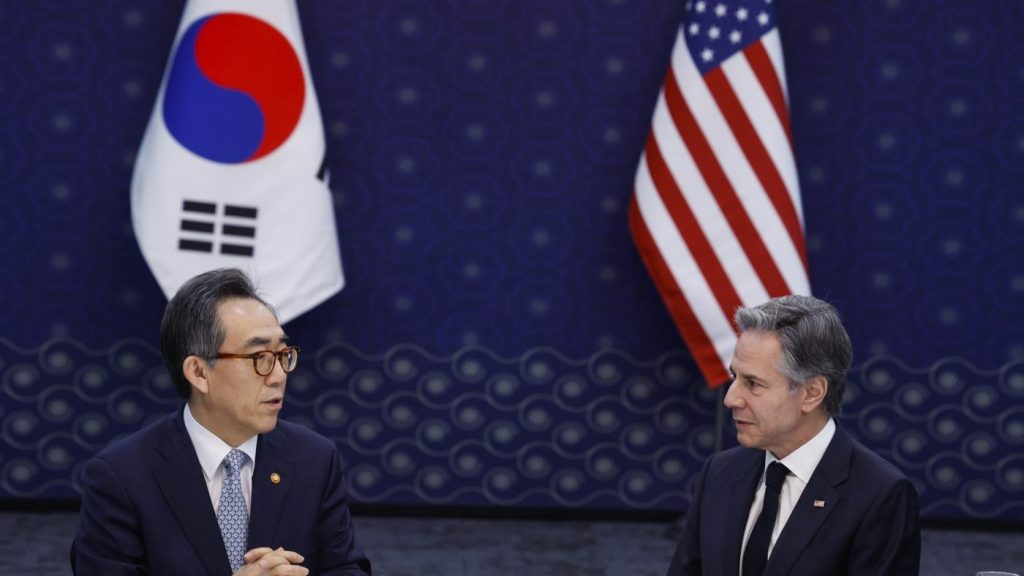North Korea launched multiple short-range ballistic missiles on Monday morning, local time, while Secretary of State Antony Blinken arrived in Seoul for a democracy summit with several allied leaders.
The launches are the country’s first known missile tests in about a month and come after the end of annual U.S.-South Korean military drills in the region that North Korea has called proactive.
South Korean officials stated that the country’s military discovered “several aircraft thought to be short-range ballistic missiles.” They were launched from the Pyongyang area and traveled about 300 km before landing in the East Sea, according to a translation of the statement, which also reported that launches were detected from about 7:44 a.m. to 8:22 a.m. local time.
Japan’s Defense Ministry similarly said North Korea fired three missiles, two at 7:44 a.m. and one about 37 minutes later, The Associated Press reported.
U.S., South Korean and Japanese officials all stated in their respective announcements that they were cooperating closely with each other to share information and, according to South Korean officials, “comprehensively analyze” the “detailed specifications.”
All three denounced the launch.
The U.S. said it has determined there was no immediate threat to personnel.
“We are aware of the DPRK’s March 17 ballistic missile launches and are consulting closely with our allies and partners. We have assessed these events did not pose an immediate threat to U.S. personnel or territory,” the U.S. Indo-Pacific Command statement said.
“The United States condemns these launches and calls on the DPRK to refrain from any further destabilizing acts,” the statement continued.
“We strongly condemn North Korea’s missile launch as a clear provocation that seriously threatens peace and stability on the Korean Peninsula,” the South Korean statement read. “Our military will maintain the ability and readiness to respond overwhelmingly to any provocation while keeping a close eye on North Korea’s various activities under a solid ROK-US joint defense posture.”
Japanese Prime Minister Fumio Kishida criticized North Korea’s repeated ballistic missile tests as acts “that threaten the peace and safety of Japan, the region and the international society,” at a parliamentary session, according to the AP.
The missile tests come amid heightened tensions on the Korean peninsula. North Korean leader Kim Jong Un has framed the strengthening of the alliance between the U.S., South Korea and Japan as a threat, and has intensified his rhetoric around what he describes as provocative actions by the U.S.
In response to North Korea’s barrage of missile tests since 2022, U.S., South Korean and Japanese forces have expanded their joint training exercises and drills to strengthen their defense.
Before the recent launches, North Korea’s last missile tests were carried out in mid-February.
Blinken, following the North Korean launches, posted statements reaffirming the U.S.’s commitment to democracy and to its South Korean allies.
Blinken expressed gratitude to Republic of Korea Foreign Minister Cho for the work done by @MOFAkr_eng on a successful Summit for Democracy. They talked about continuing to work together to prevent DPRK aggression and both were concerned about Pyongyang’s military aid for Russia and increased hostile statements directed at the ROK. wrote in a post on X, the platform formerly known as Twitter, on Monday.
Earlier Monday, he posted posted a photo with the South Korean president, stating they met before the third day of the Summit for Democracy and “reiterated our continued resolve in the face of the DPRK’s hostile rhetoric and destabilizing activities.”









